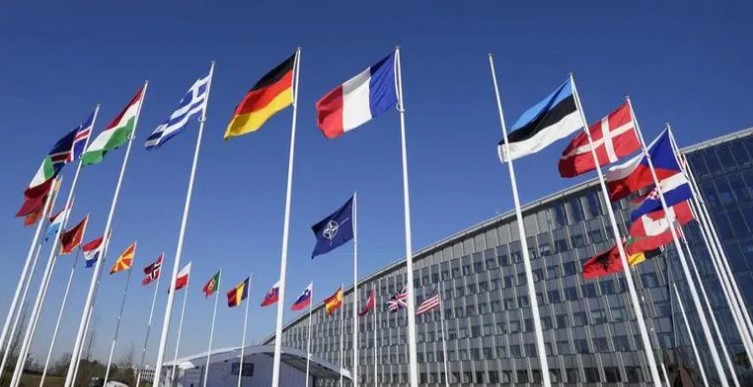As the security environment across the Atlantic turns unpredictable and complex, the relationship between the European Union and the North Atlantic Treaty Organisation is becoming more essential for European security and defence. With the backdrop of the Russian war on Ukraine and the collective goal of collaborating to foster security and stability in Europe and beyond, both the EU and the NATO continue to share a vision of democratic values, human rights, and rule of law. In the face of a resurgent Russia, NATO increasing its military presence in Eastern Europe, and the EU imposing financial sanctions on Russia, it is the need of the hour for the two security actors to enhance their collective defence capabilities and move towards greater cooperation. This was made visible in the signing of their joint declaration on January 10, 2023 which reiterated the Union’s commitment to NATO Treaty Article 5 which signifies that “an armed attack against one or more member shall be considered an attack against them all”; an article that has been imposed only once in NATO history, after the gruesome attacks of 9/11 on the United States in 2001.
With such a security landscape as the backdrop, Finland officially acceded to NATO on April 4, 2023, all set to compensate for the prevalent gap in the organization’s defence planning in its eastern territory, given the fact that Finland shares a 1,340-kilometre border with Russia. With this move, Finland has finally renounced its long-standing commitment to military non-alignment and neutrality maintained during the Cold War. Further, with the background of aggression in Ukraine, the primary motivation for Finland to join NATO also remains the quest for expanding its security measures beyond what their national armies can provide. For NATO, on the other hand, Finland’s accession as well as an impending Sweden accession can be a geopolitical game-changer as they are considered valuable military as well as political assets of Europe. With their well-equipped and modern military capabilities along with stability in democratic institutions, they serve to be important and reliable partners for NATO in enhancing regional security and stability in Northern Europe.
Russia has been historically against NATO expansion in the area and thus Finland’s accession is also predicted to have a number of geopolitical implications. Although the Finnish authorities have clarified that their choice to join the alliance is driven by their security requirements with an aim to protect their nation’s sovereignty and territorial boundaries, without threatening another country, however, the Kremlin is likely to perceive this move as a provocative act.The accession of the Nordic countries to NATO also highlights the expanding influence of the Baltic Sea Region in the alliance’s security strategy. From Russia’s annexation of Crimea in 2014, to the Russian invasion of Ukraine in 2022, NATO has been attempting to extend its military presence in the region. Finland and Sweden’s strategic location in the Baltic region provides NATO with an important access to the Baltic Sea as well as the Arctic region, which is also critical for transatlantic security. Thus, as NATO has been confronted with a number of security challenges expanding away from the traditional security military prism to also include non-traditional security concerns such as cyberattacks, hybrid warfare, and geopolitical tensions with Russia, the accession of Finland comes with a sense of desire to modernize and adjust to the evolving security environment. The accession is a significant step towards reinforcing NATO’s deterrence and defence capabilities, notably in the Baltic region, proving to be a critical area of security concerns in Europe.
As a result, Finland’s entry into NATO symbolizes a crucial milestone in the history of the alliance and marks a significant shift transcending into the beginning of a new era. As the security landscape continues to evolve in the 21st century, NATO is also acknowledging the necessity to modernize as well as reinvigorate its capacities. This move proves to be significant in terms of not only improving the alliance’s defence and security capabilities, but also towards promoting stronger ties between North America and Europe.
As the EU and the NATO agree to increase cooperation and coordination with a goal of enhancing Europe’s defence, there is a strong urge for Europe to secure its defence capabilities against a resurgent, revisionist, aggressive and non-imperial Russia. Along with fostering greater collaboration among defence companies, the two security actors are required to work together to improve the compatibility as well as inter-operability of their defence systems. With the accession of Finland to NATO, there is expected to be more uniformity in Europe in terms of its involvement with the liberal model of the Western alliances, with the objective of forming the cornerstone of the future international global order.





